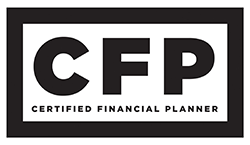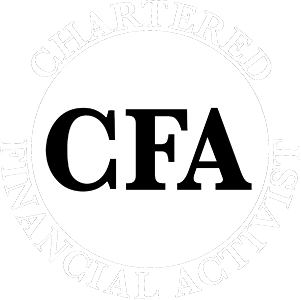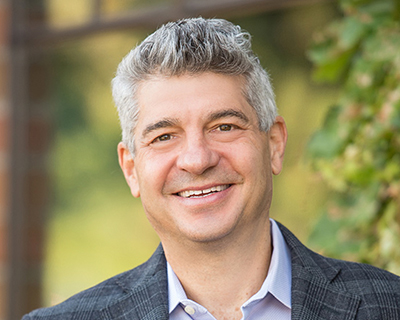A revolving fund finances small businesses in India or Detroit. An infrastructure loan enables low income communities to install solar cells to reduce their reliance on fossil fuels. Below-market-rate mortgages empower communities to rebuild aging housing stock and reclaim deteriorating neighborhoods. These are all examples of private debt impact investing, a powerful tool to drive long-term, sustainable change, while also providing investors with income and diversification.
Table of Contents
What is Private Debt?
Private debt is a loan made directly to a company or other business entity. It is not traded on public markets and, as a result, is relatively illiquid. Investors in private debt will generally need to hold their investment for the entire loan term.
Like public debt, private debt pays investors an interest rate which is generally variable, or floating—that is, it is pegged to an underlying benchmark like SOFR.
Private debt has, historically, performed very differently from other asset classes including public debt. As a result, it can be a valuable component of a diversified portfolio, reducing overall volatility and generating more consistent returns.
As investor demand has increased and other sources of financing, like bank financing, have receded, the market for private debt has grown dramatically. Global private debt assets reached $1.4 trillion in 2023, after growing by an average of 13% annually over the previous decade. [1]
Impact Investing With Private Debt
Private debt isn’t, by itself, a form of impact investing. However, private debt has long been a component of certain sustainability approaches. The Grameen Bank in Bangladesh, for instance, has been using private credit to fund small businesses shut out of the formal banking system since 1976. More recently, policymakers have looked to private credit as a way to finance a multi-trillion dollar climate transition, especially for poorer, emerging economies seeking to upgrade energy infrastructure and reduce greenhouse gas emissions.[2]
Incorporating impact considerations into private debt vehicles is partly a matter of risk management. Like other institutional managers, private debt fund managers must meet investors’ increasing demand for ESG reporting. According to PRI, 82% of private debt fund general partners currently collect ESG data as part of their direct lending process.[3]
However, some funds go beyond screening potential investments for ESG criteria to build in incentives for increased sustainability. Sustainability linked loans (or SSLs) allow borrowers to qualify for lower interest rates if they meet certain goals, for instance, reducing greenhouse gas emissions. In this way, investing in private debt for impact can not only reward entities with good ESG profiles with financing, but also encourage continuous improvement.
Different Types of Private Debt Impact Investing
Private debt impact investing can take many forms. It can offer investors both domestic and global investment options. There are funds that invest for market returns and that generate below market rates in exchange for greater social impact. Some funds invest across sustainability criteria, while others focus on a specific objective. A wealth advisor specializing in impact investing can help you target funds that best meet your needs for both financial returns and impact. Here are some of the most common types.
1. Tax-exempt Bonds
One way to invest in fixed income for impact is through certain kinds of tax-exempt bonds. While we typically think of municipal bonds as a tool for managing tax exposure, they also can have strong social impact.
Consider that municipal issuers are often mission driven. These states and localities are confronting a wide range of environmental, social and community development concerns with limited funds. Issuing bonds can help them meet their challenges while providing investors with predictable, tax-advantaged income. Investors can choose the municipal issues that best fit their sustainability priorities, which may include:
a. Affordable Housing
Investors who are concerned about housing affordability may wish to consider Low Income Housing Tax Credit bonds or LIHTCs. Since the program’s founding, LIHTCs have subsidized the acquisition, construction, and rehabilitation of more than 110,000 units of affordable rental housing.[4]
LIHTCs were created as part of the 1986 Tax Reform Act. Through the program, the U.S. government issues tax credits to state and local governments to subsidize housing development. These governments then award the credits to private developers who build or renovate affordable housing projects. LIHTC provides developers with subsidies that keep them afloat during the often lengthy process of developing and renting out their low-income housing project. Investors receive interest income and a tax benefit when they invest in these securities.
You can invest in a LIHTC directly, by buying and developing a low-income property. However, many individuals and families participate in this sector indirectly, through pooled funds that invest in LIHTC properties. These funds can be focused on properties in a specific location or geographically diversified.
b. Health Care
As the COVID-19 pandemic proved, health care equity is a pressing social issue. Care in rural, inner city and other underserved areas is often far scarcer and harder to access than in major hubs. To make it easier and less costly for health care organizations to raise money, the government permits these entities to issue tax-exempt debt, backed by hospital revenues. Investors can purchase these securities either directly or through funds that specialize in them.
c. Education
Tax-exempt bonds are also often issued by both public and private educational institutions. Public schools, including state universities, are typically financed with tax-exempt bonds issued by state and local governments, while private institutions may qualify to issue private activity bonds. Interest from both is exempt from federal taxes and sometimes state and local taxes.
2. Credit Enhanced loans
In broad terms, credit enhanced loans are loans that contain special provisions that make it easier for the borrower to pay off principal and interest. Typically credit enhanced loans offer a lower interest rate to borrowers who meet certain parameters.
In impact investing, credit enhanced loans can create incentives for sustainability practices. For instance, an organization dedicated to promoting sustainable agriculture might tie farm loan rates to borrower’s willingness to adopt climate-friendly farming practices such as crop rotation, composting and integrated crop and livestock management. The better the borrower’s performance on sustainability, the less he or she would pay in interest.
Credit enhanced impact loan rates can be linked to any number of criteria—use of renewable energy, reduction in emissions, reach into low-income and minority communities and others.
3. Microfinance
Microfinance is the oldest form of private debt impact credit, with some forms of the concept—making small loans to businesses unable to access capital from banks—existing since the 1800s. Mohammed Yunus’ Grameen Bank popularized the idea in the 1970s, seeding the capital to make small, unsecured loans to impoverished Bangladeshis starting businesses. The borrowers paid principal and interest back into the community fund, which was then lent to other borrowers. To date, the bank has lent out nearly $37 billion dollars to some ten members, 97% of them female; over 97% of its borrowers pay back their loans on time and with interest.[5]
Microfinance has since become a global phenomenon. Valued at $187 billion in 2022, it is projected to reach a market size of $489 billion by 2030, a growth rate of nearly 13%. [6]
For investors interested in microfinance opportunities, the CIM Enterprise Loan Fund is worth a look. This is a private debt fund managed by San Francisco-based Community Investment Management LLC (“CIM”). The Fund extends credit to technology-driven lenders that are, in turn, lending to individuals and small businesses in the United States. CIM officially started operations in April 2015 and has funded more than $600 million in loans in the past four years through ten different platforms.
In addition to offering investors a financial return, the CIM Enterprise Loan Fund targets impact through economic empowerment of its borrowers. It sources loans through technology-enabled platforms including the Lending Club, Funding Circle, Street Shares, Lighter Capital, LendStreet, Able Lending, DealStruck and Circle Up. Through these technology-enabled platforms, CIM has been able to connect with and serve non-traditional borrowers. Its portfolio has a higher allocation to women, minorities and veterans than the traditional financial markets.
4. Green Credit
The climate transition is one area where private credit impact investing may play a pivotal role. Emerging economies will require an estimated $2 trillion annually by 2030 to finance the infrastructure for net zero emissions. This is five times the amount that is currently being invested in climate mitigation.[7]
Public debt will play only a supporting role in this massive project. The IMF estimates that private investors will need to supply roughly 80% of the credit required—and if you exclude China, with its enormous commitment to public works, that figure rises to 90%. [8]
Making progress towards net zero will require technology to develop new sources of renewable energy and achieve efficiencies in energy and resource usage. One fund financing this effort is WindSail Capital Fund, L.P., a fund with $145 million currently (and up to $200 million to be raised) to invest through senior secured loans in clean energy technologies. The fund looks to provide investors with financial returns through investments that are about two-thirds in debt instruments and one-third in equity. The fund’s portfolio currently includes companies involved in low-carbon concrete manufacture, wastewater treatment, battery storage and sustainable infrastructure finance.[9]
How Does Private Debt Impact Investing Work?
Private debt impact investors apply two sets of criteria to analyzing the transactions they are considering: financial strength and sustainability.
Due diligence
Managers begin by scrutinizing potential financing transactions according to both investment and sustainability criteria. On the investment side, they consider the same factors as any other private debt investors—the borrowers’ financial stability, borrowing history, business model and likelihood of being able to repay the loan according to its terms.
On the sustainability side, investors look at factors that may include climate impact, emissions, gender equity, fair labor practices, impact on economic inequity or others, depending on the focus of the fund. It can be challenging to collect this data, since private debt impact borrowers are often smaller companies or other entities who are earlier on the curve towards understanding and measuring ESG performance. Fund managers may have to work with their portfolio companies to standardize reporting on these measures.
Funds weigh these two types of analysis differently. Some primarily seek a market rate of return with less emphasis on sustainability. Others may accept a below-market return in exchange for greater impact.
Set key performance indicators
During the due diligence process, investors identify and set key performance indicators or KPIs. These are objective standards for measuring sustainability progress—with a timeline for reaching their goals. Funds introduce these metrics to borrowers and incorporate them into reporting to limited partners, so everyone understands the targeted sustainability goals and how much progress has been made.
Align incentives with sustainability metrics
Some (but not all) fund managers embed incentives for reaching sustainability goals into their loan structures. For instance, a utility company that generates a certain percentage of power through renewables might qualify for a slightly lower loan rate. This gives portfolio companies economic incentives to improve sustainability performance.
Measure progress over time
Fund managers continue to measure both financial and sustainability performance on an ongoing basis after a loan has been made. If borrowers fail to meet either standard, fund managers will typically engage with them to see how they can help them improve.
Advantages of Private Debt Impact Investing
Investing in private debt for impact can be a rewarding and important part of an overall portfolio. It offers four main benefits:
Income: Like any fixed income investment, these funds generate consistent, predictable income. In some cases, this income is tax-exempt, an additional benefit.
Diversification: Private debt has a low correlation to other asset classes, including publicly traded debt and equity and private equity. As a result, allocating a portion of a portfolio to impact-oriented private debt will typically reduce overall risk and generate more stable returns.
Impact: When you invest in impact private debt, you’ll be able to measure progress towards whatever sustainability goal the fund has targeted. Whether you are supporting a clean energy transition or economic opportunity for low-income individuals or innovations in health care, education or housing, you’ll receive regular reports on how well your fund is achieving its goals.
Long-term focus: Impact investing in private debt has a time horizon of years rather than months, providing a mechanism for making a long-term, sustained commitment to the issues that matter to you.
For more information about private debt impact investing, or impact investing in general, schedule an appointment with an advisor.
[1] “ESG Incorporation in Direct Lending,” Principles for Responsible Investing, September 2023. https://www.unpri.org/private-debt/esg-incorporation-in-direct-lending-a-guide-for-private-debt-investors/11772.article
[2] “How to Scale Up Private Climate Finance in Emerging Economies,” IMF Blog, October 7, 2022. https://www.imf.org/en/Blogs/Articles/2022/10/07/how-to-scale-up-private-climate-finance-in-emerging-economies
[3] “ESG Incorporation in Direct Lending,” Principles for Responsible Investing, September 2023. https://www.unpri.org/private-debt/esg-incorporation-in-direct-lending-a-guide-for-private-debt-investors/11772.article
[4] “What is the Low-Income Housing Tax Credit and how does it work?” Tax Policy Center. https://www.taxpolicycenter.org/briefing-book/what-low-income-housing-tax-credit-and-how-does-it-work
[5] “About Grameen Bank (GB)” Grameen Bank website, retrieved October 23, 2023. https://grameenbank.org.bd/about/introduction
[6] “Global Microfinance Market to Reach $488.9 Billion by 2030,” Yahoo Finance, July 7, 2023. https://finance.yahoo.com/news/global-microfinance-market-reach-488-105800686.html
[7] “Emerging Economies Need Much More Private Financing for Climate Transition,” IMF Blog, October 2, 2023. https://www.imf.org/en/Blogs/Articles/2023/10/02/emerging-economies-need-much-more-private-financing-for-climate-transition
[8] “Emerging Economies Need Much More Private Financing for Climate Transition,” IMF Blog, October 2, 2023. https://www.imf.org/en/Blogs/Articles/2023/10/02/emerging-economies-need-much-more-private-financing-for-climate-transition
[9] “Our Portfolio,” Windsail Capital Group, retrieved October 24, 2023. https://www.windsailcapital.com/portfolio
As a serial entrepreneur and world traveler, Lee Strongwater, president of Colorado Capital Management, brings a global perspective to investments and life planning.
- Lee Strongwaterhttps://coloradocap.com/blog/author/lee-strongwater/
- Lee Strongwaterhttps://coloradocap.com/blog/author/lee-strongwater/
- Lee Strongwaterhttps://coloradocap.com/blog/author/lee-strongwater/
- Lee Strongwaterhttps://coloradocap.com/blog/author/lee-strongwater/
Editor’s Note: This blog post is for informational purposes only and does not constitute financial, legal, or tax advice. Readers are encouraged to consult with a qualified professional regarding their individual circumstances. Please refer to our firm’s website for full disclosures and important information: CCM Website Disclaimer












